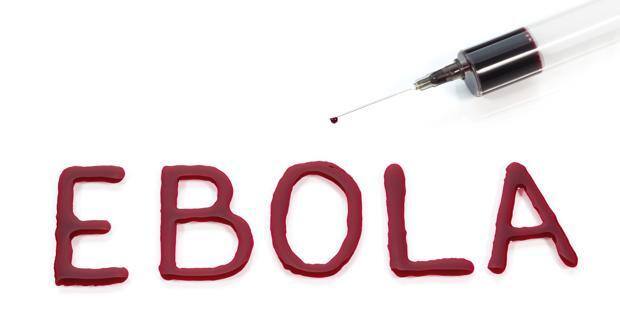
New monkey studies show that one shot of an experimental Ebola vaccine can trigger fast protection, but the effect waned unless the animals got a booster shot made a different way. Some healthy people are rolling up their sleeves at the National Institutes of Health for the first human safety study of this vaccine in hopes it eventually might be used in the current Ebola outbreak in West Africa.
The NIH today published some of the key animal research behind those injections. One reason the vaccine was deemed promising was that a single dose protected all four vaccinated monkeys when they were exposed to high levels of Ebola virus just five weeks later, researchers reported in the journal Nature Medicine
Is five weeks fast enough?
That’s in line with other vaccines routinely used today, and fortunately it didn’t take multiple doses to trigger that much protection, said Dr. Anthony Fauci, director of NIH’s National Institute of Allergy and Infectious Diseases, whose employees led the work. The bigger challenge is that the protection wanes over time.
Researchers exposed monkeys to Ebola 10 months after vaccination, and this time only half were protected. Partial protection is better than none, Fauci said. But the goal is long-lasting protection, so it was time to try booster shots. The vaccine is made with a chimpanzee cold virus, used as a delivery system for pieces of an Ebola gene.
The researchers tried simply giving another dose as a booster two months later. That didn’t work well enough. So they tried a different approach called “prime-boost.” The first dose, to prime the immune system, was that original chimp virus-based Ebola vaccine. But for the booster two months later, they made vaccine a different way. They encased the same Ebola gene pieces inside a poxvirus that’s used to make a vaccine against smallpox. (Neither vaccine type can cause Ebola.)
This time, all four monkeys still were protected 10 months after the initial shot. With the Ebola crisis rapidly worsening, the World Health Organization said Friday that it would try to speed the use of certain experimental products, including two vaccine candidates. The WHO said that in November, it expects early results from first-stage studies to see if the vaccine appears safe and triggers an immune reaction in people. That would help determine whether to test the shots’ effectiveness in health care workers in West Africa.
Latest Ebola Treatment News
The ZMapp
Till now the most effective drug against the Ebola virus has proven to be the ZMapp – a combination of antibodies – that has helped cure two US doctors. The drug is designed to target and inactivate the ebola virus, and is a combination of three different antibodies. The ZMapp works in the same way our natural immune system does only in a more specific way.
Japan’s Avigan
Japan has said that it’s ready to provide a Japanese-developed anti-influenza drug to treat the deadly Ebola Virus. Chief Cabinet Secretary Yoshihide Suga told a news agency: ‘Our country is prepared to provide the yet-to-be approved drug in cooperation with the manufacturer if the WHO requests’. The drug is called Avigan and has been developed by Japan’s Fujifilm Holdings Corp subsidiary Toyama Chemical. The generic name of the drug is favipiravir. The company is also in talks with the USFDA to expand the use of the drug for treatment of Ebola.
Canadian Ebola Vaccine
A vaccine developed by Canadian company Immunovaccine Inc., was found to be protective against Ebola virus in animals. Four monkeys infected with the Ebola virus survived after being injected the vaccine. The company declared the study results on Monday which caused its stock markets to soar high.
The Halifax, Nova Scotia-based company said that the four monkeys were first vaccinated and later a lethal dose of Ebola virus was injected in them. While these four animals survived the viral attack, two monkeys in the control group, who did not receive the vaccine, died within a week. The company started the production of Ebola vaccine few months back after the U.S. National Institutes of Health (NIH) suggested Immunovaccine to develop vaccine for Ebola implementing the technology used by the company in the development of anthrax vaccine
No comments:
Post a Comment